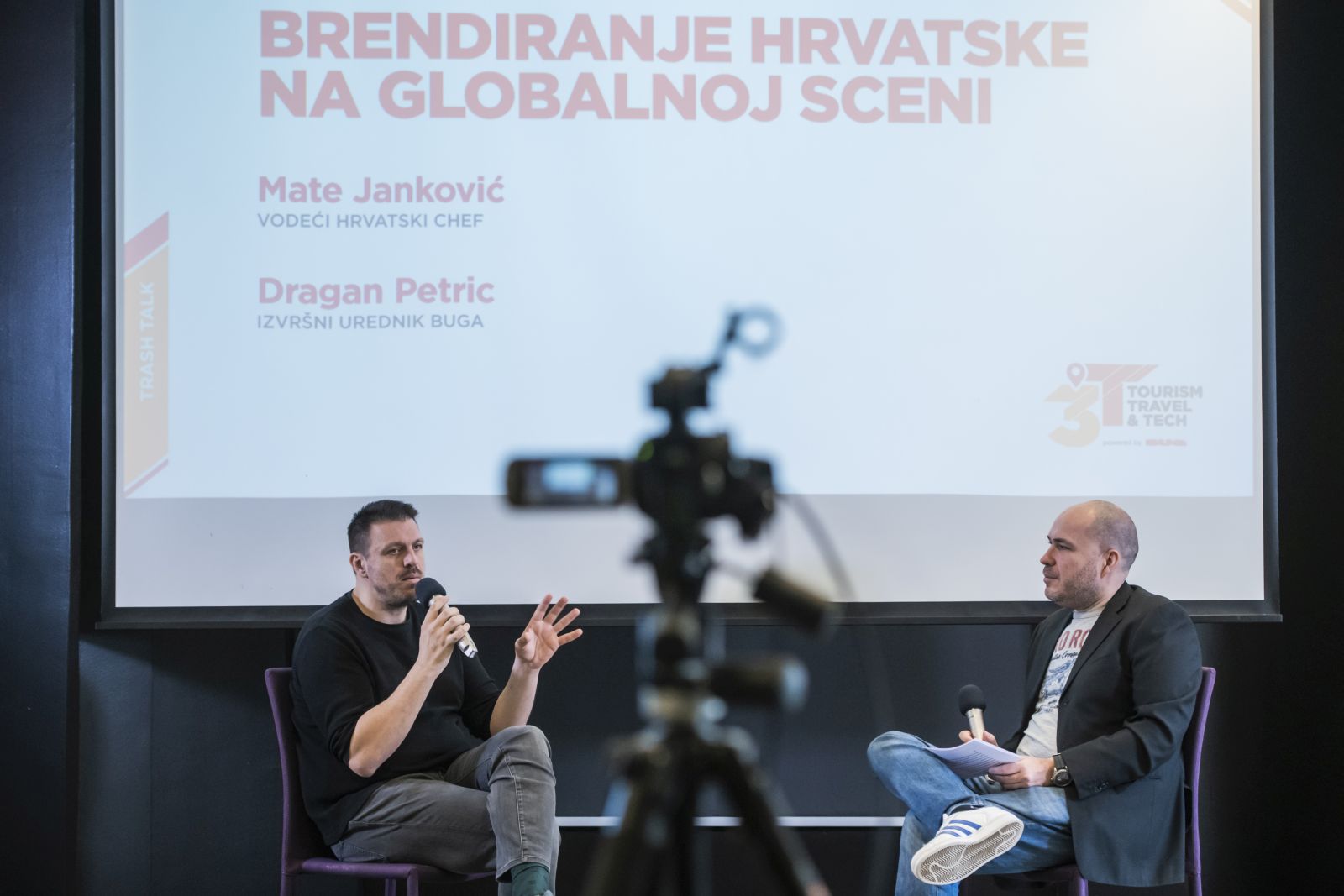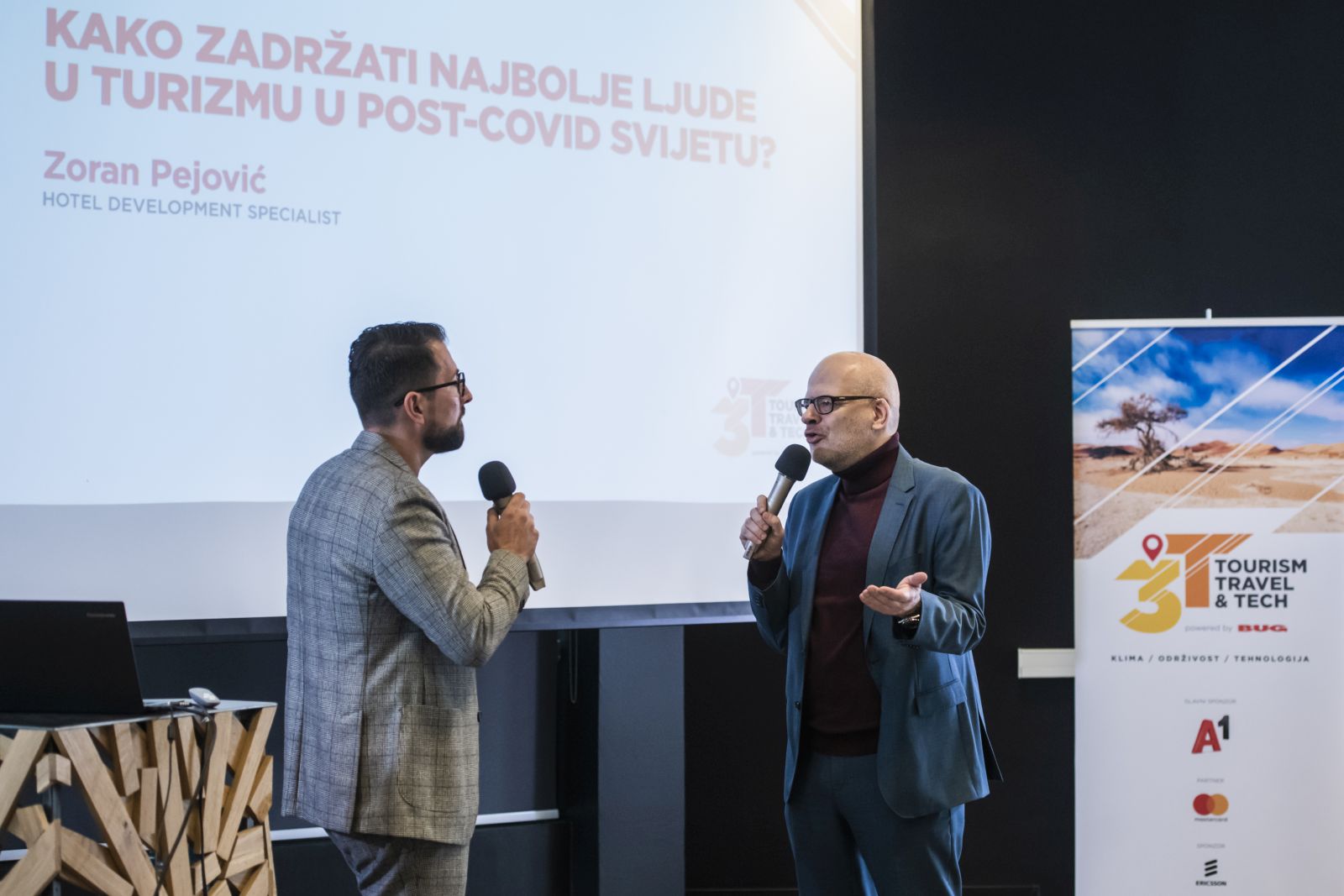Croatia Logs 176 New Coronavirus Cases, Up 35% Week on Week
ZAGREB, 23 July 2021 - In the past 24 hours, 176 coronavirus cases have been registered in Croatia, while the first five days of this week saw a 35% rise in new cases week on week, it was said on Friday at a press conference of the national COVID-19 crisis management team.
The 14-day incidence is 39.8% per 100,000 population. In the past 24 hours, 4,911 persons have been tested and 3.56% of the tests have come back positive, said Health Minister Vili Beroš.
There are 128 hospitalised COVID patients, four more than yesterday, including 17 on ventilators, three more than yesterday.
42% of adults fully vaccinated
To date, 2,980,716 vaccines have been administered. Beroš said 1,610,989 persons had received one dose, while 1,411,630 had been fully vaccinated, having received both doses or just the one of Johnson & Johnson.
To date, 41.92% of adults have been fully vaccinated and 47.7% have received at least one dose.
Beroš reiterated that failure to comply with restrictions was "the road into the red" and that it would make tourists leave Croatia as well as cause economic problems, once again calling on citizens to get vaccinated.
Public Health Institute director Krunoslav Capak said Croatia ranked tenth according to the 14-day incidence.
Asked if a third vaccine dose would be administered in Croatia, he said "very likely," adding that Turkey and Hungary were giving the third dose to persons immunised with the Chinese vaccine.
Capak said scientists would say in the period ahead whether a third dose would be required.
"There are no indications for now that a third dose will be necessary," said Alemka Markotić, head of Zagreb's infectious diseases hospital.
Delta variant accounts for 70% of infections in EU
"About 70% of all infections in Europe are being caused by the Delta variant. Mostly infected is the young population, who travel, are active and visit mass gatherings. This has been defined as the biggest risk this summer," she said, urging older people to get vaccinated.
Asked if restrictions in Croatia could be lifted in the autumn, Interior Minister Davor Božinović said Croatia was watching what was happening in Europe and the rest of the world but that, unlike the UK, it had not yet vaccinated a majority of the oldest and most vulnerable population.
Success of British experiment would be good news
He said the success of the British experiment would certainly be good news not just for Croatia but the whole world. However, he added, the British have a very high vaccination rate among those most at risk of serious illness, with 87% having received the first dose.
We are far from the British, he said, adding that the epidemic, until it was stopped globally, could not be stopped locally either.
According to official sources, Croatia has ensured more doses for its citizens than are currently available in all of Africa.
For more news, CLICK HERE
20 Tourists in Zagreb Tested For COVID-19
ZAGREB, 13 April, 2021 - Foreign tourists who generate at least one bed night in Zagreb can be tested for COVID-19 at 50% of the price and about 20 have already been tested over the weekend, the director of the Zagreb Tourist Board (TZGZ), Martina Bienenfeld, said on Tuesday.
TZGZ is the first regional tourist board in Croatia that has opened a testing station for foreign tourists as had previously been proposed by Tourism and Sports Minister Nikolina Brnjac.
Testing to be co-financed
In addition to opening the testing station, TZGZ has decided to cofinance testing that is conducted during weekends and public holidays, Bienenfeld told Hina.
TZGZ will cover half the cost of testing for tourists, she said, estimating that the greatest demand will be in the coming period and that that will depend on the percentage of inoculated tourists from the countries they are coming from, but also of employees in tourism and citizens themselves, and finally on the introduction of Digital Green Certificates at the EU level.
Testing during weekdays will be at the normal price and already about ten Zagreb hotels are providing testing services. Testing can also be conducted at Zagreb's airport.
Providing opportunity for tourists to extend their stay
"One of the important reasons why we decided to co-finance testing in the days noted is that this provides the opportunity for tourists to extend their stay in Zagreb, because they do not have to worry where and when they can be tested when returning to their countries and they can avoid quarantine," said Bienefeld.
All the necessary information regarding testing is available at www.infozagreb.hr/korona-virus in various languages, she said and added that the first tourists tested this way last weekend (10 and 11 April) were from Italy, Denmark, Germany and Albania.
Bienefeld said that since the beginning of the year until 11 April, almost 65,000 tourists had visited Zagreb and they generated 177,500 bed nights, which is about 47% of arrivals and 58% of bed nights generated in the comparable period in 2020.
Compared to the record 2019 year, that is about 27% and 37% of arrivals and bed nights respectively.
For more about COVID-19 in Croatia, follow TCN's dedicated page.
3T Conference – Tourism, Travel & Tech - Slow and Uneven Recovery from COVID-19
March 30, 2021 - The fourth 3T conference was an online event held last week that covered current topics related to the tourism sector. The tourism experts shared their opinions regarding the recovery of the tourism industry and potential market opportunities.
"When we launched the 3T conference, the idea was to creatively merge the two most important and most successful Croatian sectors - tourism and IT. Last year was hard on tourism, while tech didn't feel the consequences of the pandemic. Although nobody expected 2020 to happen, it might be even better motivation for cooperation between tech and tourism, said Oleg Maštruko, director of the conference.
The first keynote speaker was Hotel Development Specialist Zoran Pejović with the topic "How to keep the best people in tourism in the post-covid world? "Pejović pointed out the disastrous consequences of the crisis caused by the COVID-19 pandemic related to the loss of talented staff in the tourism industry and sudden fluctuation in other activities, which will leave long-term consequences bigger than the financial losses in tourism. He said that the industry that makes up the largest share of Croatian GDP and connects numerous other sectors could not be non-essential. Finally, he talked about finding and hiring tourism staff according to the old models, which do not correspond to trends in industries that are increasingly applying digital technologies in business.
The second keynote speaker was Robert Sedlar on Post-covid tourism, who said it would take a longer time to reach pre-pandemic tourism numbers, but this year might bring better results than 2020. After the keynote lectures, participants could hear about Smart hospitality from Siniša Staničić, who showed options for applying digital technologies in tourism.
The central part of the conference was a panel discussion How to Survive after a pandemic? Oleg Maštruko moderated the conversation, and participants were Ivan Gabrić, General Manager for Business Users of A1 Croatia, Gea Kariž, Xborder participated Marketeer At Mastercard, Andrea Andrijanić, Aviation Industry Expert, prof. dr. sc. Domagoj Bebić, associate professor at the Faculty of Political Science, and Zoran Pejović.
The afternoon part of this year's conference program included Trash Talk with the topic "Branding Croatia on the global scene". Dragan Petrić from Bug magazine and famous Croatian chef Mate Janković pointed out numerous shortcomings of branding Croatian tourist offer primarily related to Croatian cuisine. He gave ideas on branding Croatian konoba and various indigenous Croatian dishes that are not yet recognized globally.
Other lecturers during the afternoon part of the conference included Karlo Guštin, doc.dr.sc. Mirela Holy, Ilija Brajković, Robert Ilijaš, Marko Mišulić and Mosor Prvan. They all covered topics related to tourism sustainability and the potential of new technologies and digitalization in tourism.
Hopefully, this conference inspired participants to make their tourism business more sustainable and adapt to new circumstances on the global travel market and how to resist the consequences of the pandemic by use of technology. If you want to re-watch the conference you can access it here.
For more about business in Croatia, follow TCN's dedicated page.
Research Shows Tourists More Afraid of Border Regimes than Coronavirus
March 10, 2021 – The results of the Croatian National Tourist Board's Brand Tracking survey for 2020 represent key obstacles related to foreign travel, showing tourists more afraid of border regimes than coronavirus infections.
As Jutarnji list reports, Croatia may have strengthened its national tourism brand in the last five years. However, the Brand Tracking survey of the Croatian National Tourist Board (CNTB) for 2020 suggests that children's diseases still plague us and that we should seriously consider a campaign to promote Croatia on world markets.
Namely, in the context of the coronavirus pandemic, the research showed that the key obstacle related to foreign travel is "fear of various formal protection measures that could be established before or during the trip." In contrast, passengers' fear of infection at the holiday destination comes only later.
'Safe stay in Croatia' not enough?
This is a bit in contrast to the main messages coming from the Ministry of Tourism and Sports and the Croatian National Tourist Board, which continuously point out that the most important message for tourists this year is the message of safety, to which Croatia's primary campaign in the preseason is adjusted.
This refers to, of course, the project "Safe stay in Croatia," which should give certificates suggesting to tourists that the facility in which they stay is hygienic and safe. Regarding that, unofficial messages have been coming from the tourism sector for some time, noting that this will not be enough to organize a successful season. As the research now shows, it is necessary to work more actively on removing barriers to travel.
The CNTB explains that the fear of infection has less impact on travel intention because tourists generally believe that their behavior can prevent or reduce the possibility of infection. At the same time, nobody can influence the various epidemiological measures that counties introduce.
"Even though the fear of infection does not affect tourists' intentions as much as possible travel restrictions, some potential tourists, especially the elderly, have expressed this fear. We believe that it is crucial to promote Croatia as a safe environment where it is possible to spend a quality holiday," said the CNTB director Kristjan Staničić.
Competing destinations Italy and Spain perceived more accessible than Croatia
The research also confirmed that Croatia had not moved away from the perception of a "sun and sea destination." However, it has been noted that Croatia has made progress in city break vacations, as well as nature-related vacations.
Nevertheless, tourists from geographically closer and more easily accessible markets (accessible by car) still gravitate to Croatia the most. In areas other than our traditional destinations, "there is room for progress in recognizing and promoting key distinctive values," despite the generous strategic marketing plan we funded through the 2014-2020 period.
Besides, it turned out that Croatia still needs to do a lot to understand better the advantages of the Croatian tourist offer concerning the competition and that it is still insufficiently perceived as a destination for quality accommodation. It is also interesting how Spain and Italy, as Croatia's competing destinations, are perceived as more easily accessible compared to Croatia.
On the other hand, it was noticed that Croatia's image, concerning the competition, is based on "value for money." Over the years, Croatia has managed to position itself as a destination for young people, a segment where only Spain is better perceived than us.
"Young people traveling through Croatia combine different experiences and motives – city tourism, entertainment, festivals, gastronomy, sun, sea, visits to natural attractions. Some young tourists are attracted to party and festival destinations such as Novalja, Hvar, or Split, with a desirable offer," Staničić points out.
The CNTB's official page still has old figures on the infection rate
Asked by Jutarnji list journalists to explain why Croatia still has a problem of moving away from the perception of "sun and sea "destination, Staničić answered that it is dominant Croatia's tourist product and that its role will continue to be extremely important.
"The sun and the sea ensure our recognition with potential tourists. However, intensive work will continue on the establishment of other tourist products," explains Staničić.
Although the "Safe stay in Croatia "website should provide tourists with the latest information on the epidemiological situation, on Tuesday, it had the old report on the 14-day case rate, which was last updated on March 1.
As Jutarnji list unofficially finds out, the Croatian Institute for Public Health caused the lack of new data because they did not submit the table with the numbers on time.
For the latest travel info, bookmark our main travel info article, which is updated daily.
Read the Croatian Travel Update in your language - now available in 24 languages.
Epidemiologist: At This Rate, Vaccination Goal Won't Be Met Until Autumn
February 9, 2021 – In a Croatian media TV interview, epidemiologist of the Croatian Institute of Public Health Bernard Kaić yesterday said the plan to vaccinate half of the population by the summer will be delayed. He predicted that if Croatia continues vaccination at its current rate, the goal would not be reached until autumn, possibly late autumn
Epidemiologist of the Croatian Institute of Public Health Bernard Kaić, speaking to Croatian media RTL, told them the plan to vaccinate half of the population by the summer will be delayed. The epidemiologist predicted that if Croatia continues vaccination at its current rate, the goal of vaccinating half of the population within the country will not be completed until autumn, possibly late autumn.
"I can't say (by) exactly how much,” he told RTL, regarding how much delay will occur, “because we still don't know how many vaccines we'll get in March. And (how much) after March we (still) have no idea.”
“If this pace continues, it would take four million doses to vaccinate half the population. We won't achieve that until autumn for sure, and it’s late autumn,” the epidemiologist said.
According to an article in Index, the epidemiologist said that, as things currently stand, there will be three vaccines used in Croatia - AstraZeneca, Moderna and Pfizer / BioNTech. They will be used concurrently, with vaccinations from all three available in Croatia at the same time.
When asked which vaccine he would choose to be vaccinated with, the epidemiologist answered that he did not know and that he was glad that he did not have the opportunity to choose. "There was only one offered so I got vaccinated,” said the epidemiologist. “It would be really hard to decide."
When asked why some states have given up vaccinating those over the age of 65 with the AstraZeneca vaccine, the epidemiologist explained that in currently available results from clinical studies the messenger RNA vaccine had proven to be somewhat more effective in preventing mild forms of Coronavirus than the AstraZeneca vaccine. Some of the vaccines work in different ways. However, the epidemiologist ultimately said that it was expected the AstraZeneca vaccine would prove to be effective, it was just that this had not yet been proven statistically.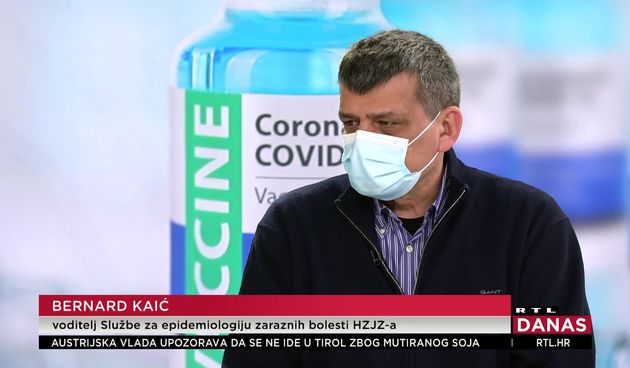 RTL screenshot
RTL screenshot
Later in the interview, the epidemiologist was asked “Due to skepticism towards AstraZeneca, many associations in (Croatia's) border areas plan to take pensioners to Serbia for vaccination. How smart is it to accept such an arrangement?”
The epidemiologist replied; “My only fear is that such organized trips do not turn into corona-trips so that people do not get infected on the way back and forth and do themselves harm. I would wait.”
The three vaccines for which Croatia is currently expecting deliveries are now not the only vaccines available. Speaking in a discussion on the same evening on another Croatian media outlet, HRT, Zlatko Trobonjača, an immunologist from the Rijeka Clinical Hospital, spoke about the Russian vaccine.
"Our country is obviously following the EU and its decisions,” he said. “The EU has entered into talks with Russia. It can be expected that these talks will continue. It is a quality vaccine, it provides high protection.”
"As for the quality of the vaccine, we can see that it is not harmful and it could be used in our country. The EU is oriented towards Western companies. And now, they (the companies) did not stick to the agreement," Trobonjača said, adding that he would be vaccinated with the first vaccine that was made available to him.
What Kind of Life Awaits Croatian Anti-Vaxxers Who Refuse Vaccination?
December 29, 2020 – The arrival of COVID-19 vaccines in Croatia has been met with much relief by many people. But, not everyone is happy. Conspiracy theorists - those who favour disreputable sources and 'whispers on the wind' to real science - are reticent, some even angry. So, what kind of life awaits Croatian anti-vaxxers who refuse to take the vaccine?
The people who inhabit the lands now known as Croatia have a long history of being pushed around. For this, they cannot be blamed. Greatly outnumbered by the occupying armies of some of the most powerful empires of all time - the Romans, Venetians, Austro-Hungarians and Ottomans - their rebellions against such overlords have been relatively small in number. Their default setting has been to visit the kafana at the end of the day and moan, grumble, gossip - perhaps even plot - against those who make their lives disagreeable.
Croatia was finally freed of its last imposing masters over two decades ago. But, true to form, the grumbling in the kafanas has continued. Except, now that the kafanas are all closed in response to Coronavirus, the moaning has moved almost exclusively to the internet. And, it has reached a shrieking pitch.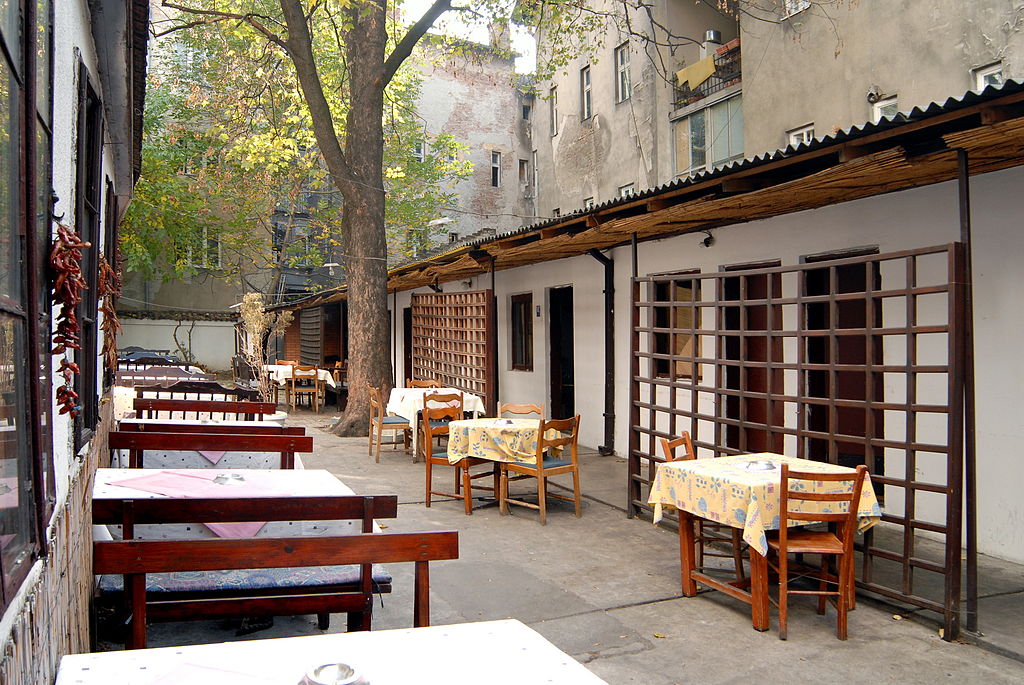
The arrival of COVID-19 vaccines in Croatia has been met with much relief by many Croatians. The news of the first vaccinated citizen, followed by the first vaccinated healthcare workers, was also well received. You can tell this from the overwhelmingly large amount of 'likes' such news generates when posted to social media. These warm welcomers of good news in Croatia could be best described as the silent majority. And, in the same way most Croatians lay subdued for lifetimes under bullying empires, this silent, sensible majority is drowned out by the deafening vitriol of the unhinged within the comments sections underneath.
These arch-moaners appear in the comments on most issues, railing against the increasingly modern ways of the world. On the issue of Coronavirus and the incoming vaccines, it is the Croatian anti-vaxxers who are angrily dominating the discourse.
It appears near pointless to debate with them. They are not ones for science, facts nor reasonable debate. Not for them are the reports of scientific journals, the BBC, The New York Times, The Guardian, Al Jazeera, or The Washington Post. Instead, they cite the most spurious of sources – a website nobody else has heard of, a document written by a friendless doctor from the Texas farming community who has a curiously photoshopped profile picture, a Youtube video made for the same price as a hamburger and narrated by a 17-year-old from the outside toilet. There's no point telling them that the vaccines coming onto the market were actually designed back on January 13, just two days after the Coronavirus genetic sequence had been made public and that it has taken until now to produce them, due to stringent testing on their safety. No. Because for Croatian anti-vaxxers, whispers on the wind, the horoscopes, crystal ball of the fortune-teller and the inescapable stare of Braco are just as reliable - if they're telling you what you want to believe. For whichever lunatic theory you want to adopt, you can look online and you'll be sure to find some crackpot to back it up. The internet is the great leveller for Croatian anti-vaxxers as well as everywhere else - a place where deposed Nigerian royalty who want to put money in your bank account have just as much credence as an 80-year-old media title with a blemishless reputation.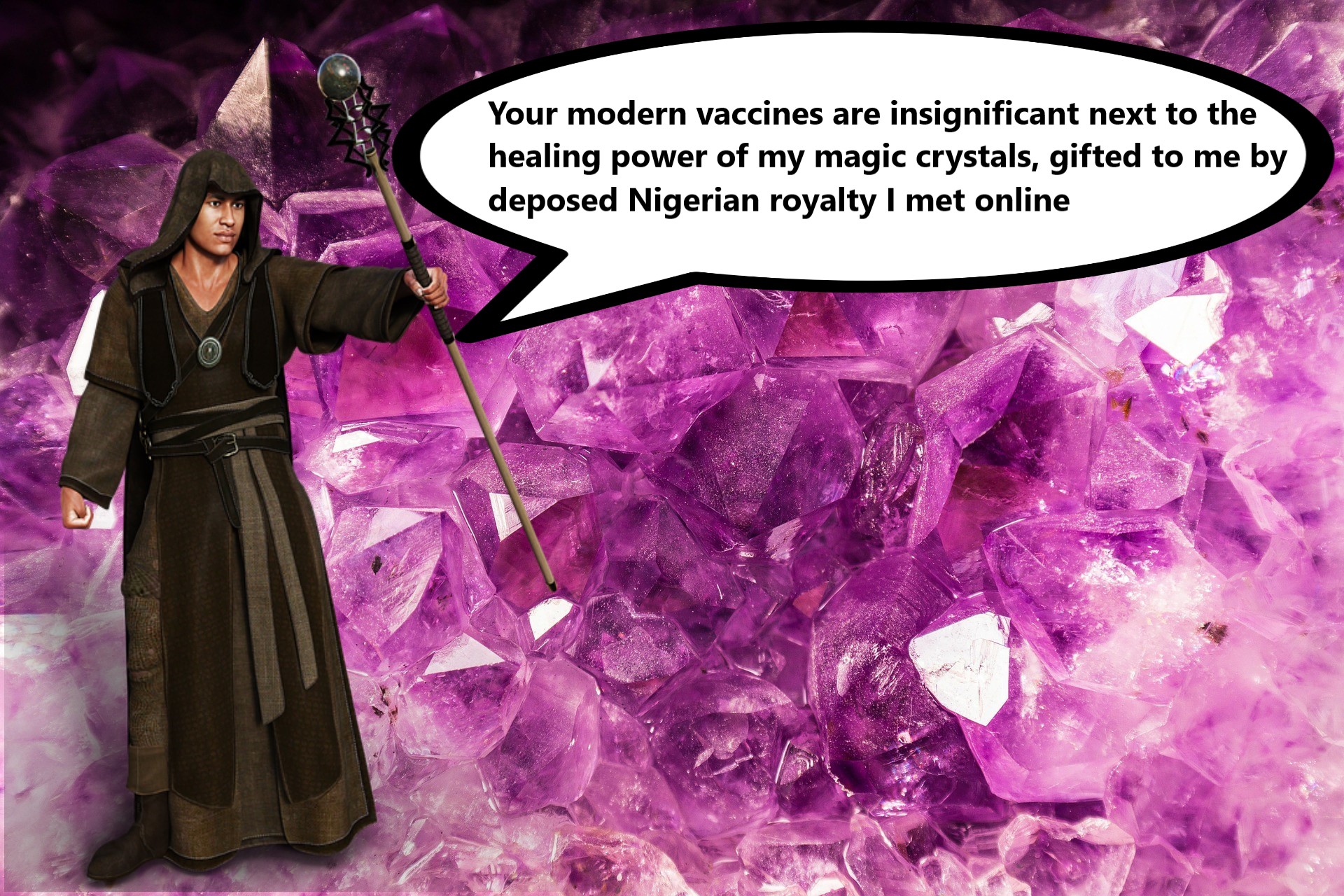
Of course, while life is too short to even debate with anti-vaxxers in Croatia or anywhere else, that's not to say they are undeserving of sympathy. In our recent interview with a doctor working on the Coronavirus frontline in a Croatian hospital, they generously raised an interesting defence of the tin-foil hat brigade - “It's not always the content of the conspiracy theory that appeals to these people as much as it is their inability to accept facts – the truth – because they have little faith in the authorities that are telling them.”
Finding fault in authorities is far from unique to Croatia. Yes, there is a certain amount of kafana moaning and grumbling all over the world, and often for good reason. Politicians are more than aware of this. And, in an era of widespread voter apathy and low voter turnout, where yet another silent majority has the potential so easily to change the names of those who govern, this is exactly why politicians will abstain from making the Coronavirus vaccines mandatory. With things as they currently stand, it is near inconceivable that Coronavirus vaccines will be made compulsory in Croatia or in any other western democracy. Good news for Croatian anti-vaxxers? Well, not quite, because it is highly likely that the private sector will be among the greatest of persuaders for vaccination. It is not unthinkable that we are about to enter a wholly new two-tiered society – the vaccinated and the unvaccinated. And signs of what that life might look like for Croatian anti-vaxxers are not good. They are not good at all.
“Vaccination could become one of the measures that would make it possible to come to events,” Stefan Breitenmoser, general manager of the Professional Association of Swiss Organizers of Concerts, Events and Festivals, told Sonntags Blick in the past week. In Switzerland, vaccination began on Wednesday and it is free. It is not only the entertainment events industry that is considering the measure - the Swiss Football League similarly said it is giving it serious consideration. Professional sports and the events industry have lost billions during the pandemic. The 2021 Olympics hangs on a knife-edge in regards to accepting audiences into its stadiums – it has already been delayed by a year. It is highly conceivable that access to all large events in future will be dependent on proof of vaccination. The National Stadium in Japan was due to host some of the key events of the 2020 Summer Olympics. The whole event has been delayed until summer 2021, in response to the pandemic © Arne Müseler
The National Stadium in Japan was due to host some of the key events of the 2020 Summer Olympics. The whole event has been delayed until summer 2021, in response to the pandemic © Arne Müseler
In an interview on N1 television in Croatia over recent days, epidemiologist Branko Kolarić - a member of the Scientific Council of the Government of the Republic of Croatia - echoed similar thinking. He stated that a list of the vaccinated will be carefully maintained, most likely through some kind of e-documents, and although vaccination will not be mandatory, vaccination will bring some benefits - such as air travel, group gatherings and attendance of concerts and festivals. You are surely not going to see police or soldiers checking your vaccination status at the entry to a dance music festival in Dalmatia. But, it is highly likely that event organisers will insist on proof of vaccination before granting entry. Even if they don't wish to, it is more than conceivable that they would not be granted the necessary licenses nor insurance without assuming such a position.
Another industry that has lost billions in the pandemic is the travel and tourism sector. Little surprise then to have found budget airline Ryanair launching a new campaign of 'Jab and go' over the last few days. The suggestion is crystal clear – get vaccinated, you can come on our planes, we'll allow you to travel. Ryanair will certainly not be the last airline to assume responsibility for vetting passengers' vaccination status. Croatian anti-vaxxers had better be really happy to be here, because international borders may well be permanently closed for them while they remain unvaccinated.
So, a life with no spectating at big sports events, no more large concerts or music festivals and no more international travel is what seems to be just around the corner for Croatian anti-vaxxers. Sounds harsh, unpleasant. But what if it extends to libraries, schools or even hospitals? We don't yet know anything concrete about the lower tier of existence Croatian anti-vaxxers may choose to dwell in. But, it's not where I want to live. Perhaps they'll even be forced to drink exclusively in their own anti-vaxxer kafanas? For sure they'll be easy to identify – they'll be the ones from which the loudest moans are coming.
The views expressed in this article are solely those of the author and are not necessarily shared by Total Croatia News
Croatia is one of the Most Safe Countries in 2021 for Visitors
December 4, 2020 – Accepting all known knowledge of the Coronavirus risk and the announced vaccines, security and risk experts International SOS have published their latest, annual Travel Risk Map. It says Croatia is one of the most safe countries in 2021 for visitors
With the end of the life-halting Coronavirus in sight, thanks to several effective vaccines announced, which country would be best to visit next year? Well, Croatia is one of the most safe countries in 2021 for visitors.
It's been a long, difficult year for everyone. It's maybe hard to believe if you live in Croatia and haven't much travelled outside the country, but the residents of Croatia have had it no more difficult than anywhere else. With only around 4 million inhabitants, there's lots of space in Croatia to move around.
Take in comparison Britain's London. That one city (1,572 km²) alone has 9 million people. Croatia has 56,594 km² for less than half the number of people. But, this generous amount of space in which to move around is not the only reason Croatia is one of the most safe countries in 2021 for visitors.
On 2 December 2020, Total Croatia News published the annual report based on the Global Terrorism Index, identifying Croatia is one of the most safe countries in 2021 in regards to the absence of terrorist threat and effect. Now, according to the latest annual Travel Risk Map, it has been designated that Croatia is one of the most safe countries in 2021 for visitors.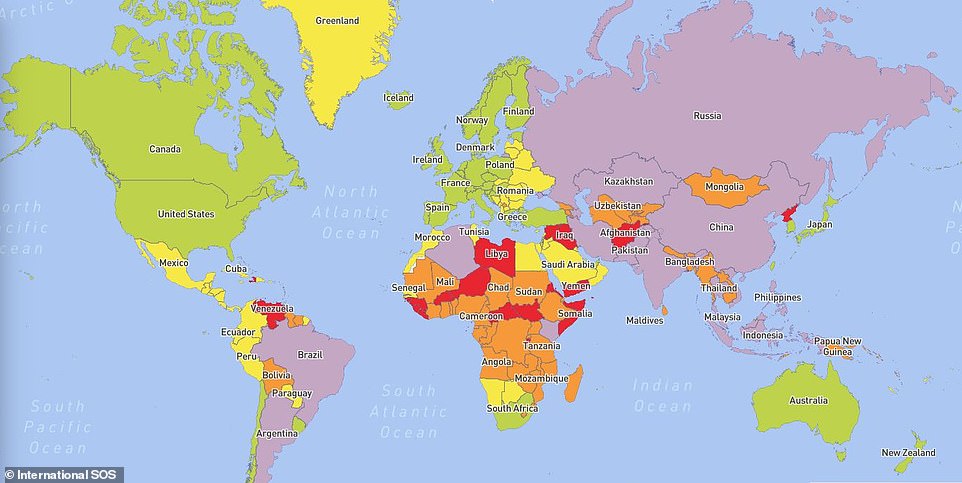 Security and risk experts International SOS's Travel Risk Map for 2021.
Security and risk experts International SOS's Travel Risk Map for 2021.
The map, created by security and risk experts International SOS , ranks the safety of countries across the globe taking into account medical, security and road risks. It assesses the risk of political violence, social unrest, and the threat of violent and petty crimes – and, most importantly this year, the impact of the pandemic.
For the first two categories, countries are given a rating out of five, while road safety is rated out of four based on the mortality rate per 100,000 people. The places with the highest risk level for security issues are mostly in Africa, with South Sudan, Mali, Yemen, Somalia and the Maiduguri region of Nigeria listed under the most dangerous, along with the Donetsk and Luhansk regions of the Ukraine.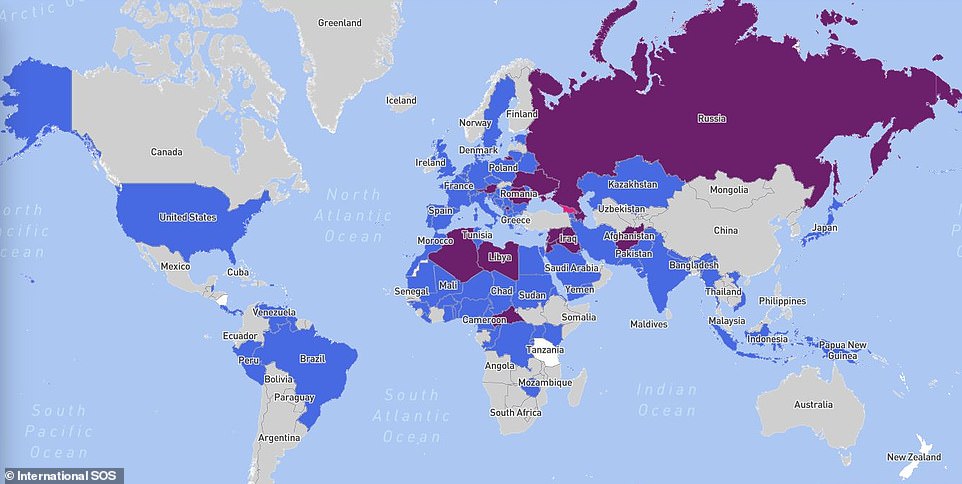 International SOS's map showing the countries with the most and least Covid-19 disruption. Very low-risk countries are marked in white, low risk in grey, medium in blue, high in purple and very high in pink.
International SOS's map showing the countries with the most and least Covid-19 disruption. Very low-risk countries are marked in white, low risk in grey, medium in blue, high in purple and very high in pink.
Very few countries rank above Croatia in the new safety map, New Zealand, Tanzania and Nicaragua among them, meaning Croatia is one of the most safe countries in 2021 for visitors.
For the residents of crowded cities elsewhere in Europe, Australia or the USA who have felt more than restricted in 2020, it might be worth remembering when planning next year's escape that Croatia is one of the most safe countries in 2021 for visitors.
Expect Many English Speaking Visitors to Croatia in 2021, says Google
September 25, 2020 - Croatia is the 14th most searched holiday destination in the world for next year. With over 810, 000 searches on Google, the country should expect a big return of English speaking visitors to Croatia in 2021
Aside from the drop in numbers, the country's accessibility and the implementation of epidemiological guidelines, the biggest effect the Coronavirus pandemic had on Croatia's tourist season of 2020 was the change in visitor demographic. The British, Americans, Canadians and Australians largely stayed away. All that looks set to change next year as Google indicates a big return of English speaking visitors to Croatia in 2021.
Over 810, 000 searches have already been made of Croatia as a holiday destination for 2021 on Google, informing that many thousands are already researching or actively planning a trip. Croatia ranked 14th among the most searched for 2021 destinations, trailing slightly behind the likes of Italy, the Maldives, Mexico, Thailand, Spain and Greece.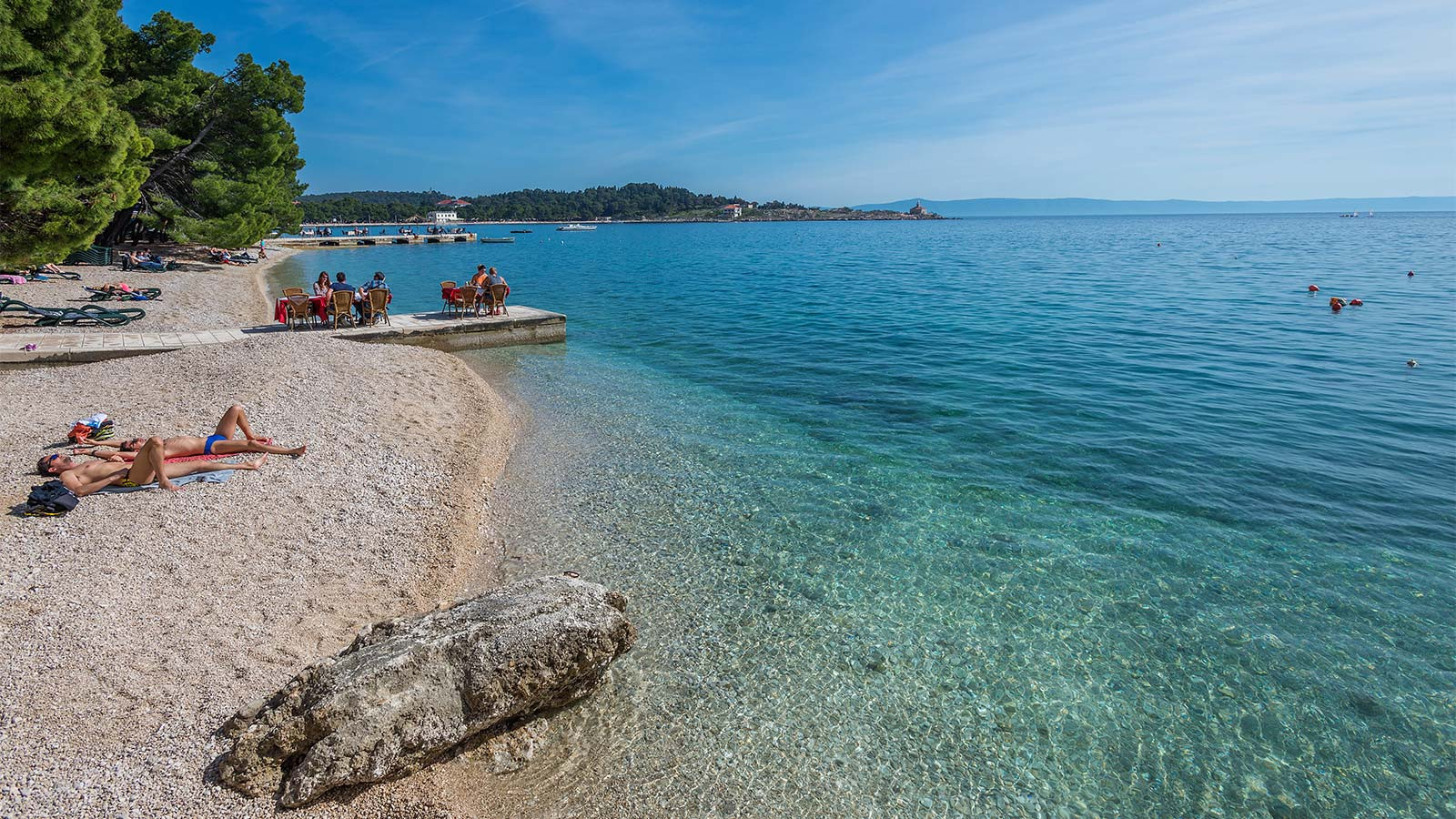 Their language mostly absent from beautiful Adriatic beaches in 2020, English speaking visitors to Croatia in 2021 look set to return © Croatian National Tourist Board
Their language mostly absent from beautiful Adriatic beaches in 2020, English speaking visitors to Croatia in 2021 look set to return © Croatian National Tourist Board
The good news for the return of English speaking visitors to Croatia in 2021 was published by the Electronic System for Travel Authorization (ESTA). The data has been taken from a period starting not before March 2020. This means that all searches took place in full knowledge of the ongoing Coronavirus and epidemiological situation. English speaking visitors are undeterred.
Iva Bahunek, the head of the Croatian Tourist Board in Los Angeles has not had the easiest of tasks since the pandemic began. Her appointment is a relatively recent one. Nevertheless, she has clearly done an excellent job of promoting Croatia as a destination for American tourists in 2021. She confirmed the trends are correct - that US citizens are ready for international travel again - by analysing data from the large American travel insurance company Squaremouth. 65% of all reservations for next year refer to international destinations.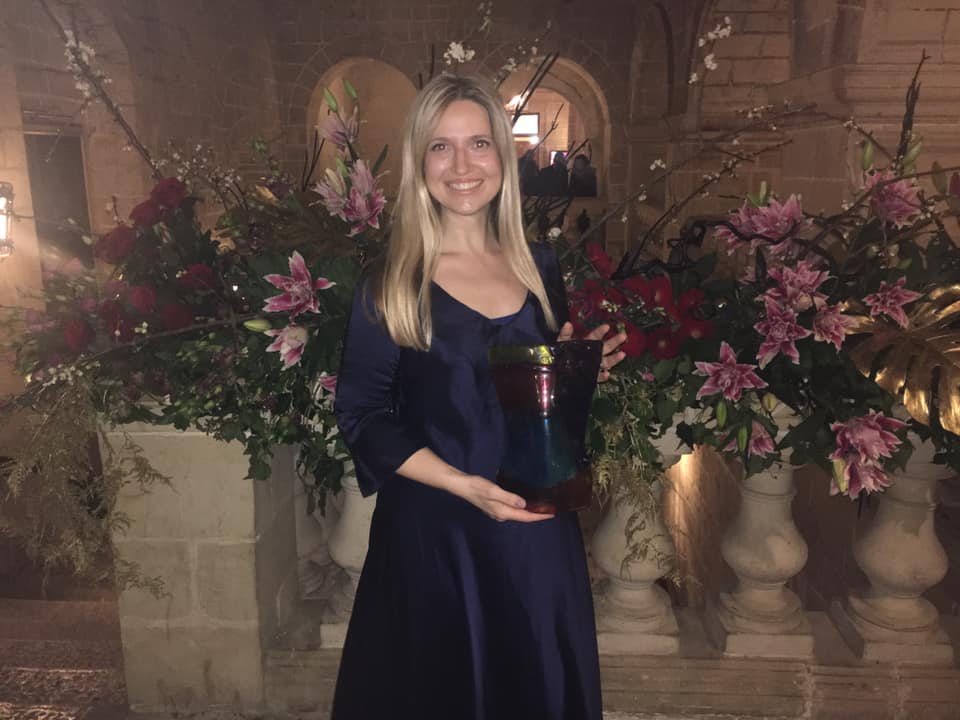 Iva Bahunek accepting her Mediterranean Stars Award for outstanding achievement in promoting Mediterranean tourism, awarded at the 6th Mediterranean Tourism Forum in Malta, 2019. She now heads the Croatian Tourist Board in Los Angeles and analysed data which backs up Google's prediction for a return of English speaking visitors to Croatia in 2021
Iva Bahunek accepting her Mediterranean Stars Award for outstanding achievement in promoting Mediterranean tourism, awarded at the 6th Mediterranean Tourism Forum in Malta, 2019. She now heads the Croatian Tourist Board in Los Angeles and analysed data which backs up Google's prediction for a return of English speaking visitors to Croatia in 2021
Indications from the British market are the same. Total Croatia News recently published an interview with Vedran Meniga, organiser of a music festival site in Sibenik that successfully hosted over 10, 000 festival-goers in summer 2020. Sadly, they were the only ones who braved it. All of the international music festivals that usually take place on the Croatian coast cancelled their 2020 events.
But, some organisers of these festivals have been seen in Croatia over recent weeks, inspecting improvements to the famous The Garden Tisno festival site, which lies at the approach to Murter island. The festival's hugely popular beach stage has had walls removed, its space widened and now looks very well equipped to take on social distancing advice. Music festivals bring tens of thousands of people to Adriatic beaches each summer and the return of the international events will entice English speaking visitors to Croatia in 2021. On the below video you can see Alex Lowes of the Suncebeat Festival and Nick Colgan of The Garden Tisno recently checking out the new layout of the site in preparation for the return of festivals in 2021.
For the latest travel info, bookmark our main travel info article, which is updated daily.
Read the Croatian Travel Update in your language - now available in 24 languages
Over 10, 000 Attend Music Festivals in Sibenik In 2020 - Zero Infections
September 22, 2020 - For six consecutive weeks this summer, the Martinska venue alone welcomed over 10, 000 international visitors to its music festivals in Sibenik. Zero cases of Coronavirus occurred.
Over recent years, three things have firmly placed Croatia on the international stage – Game Of Thrones, the World Cup and music festivals. Running for over a decade now, music festivals are the oldest of these. They have elevated places like Pula and Tisno to become among the most-Googled destinations in the country.
So popular now are Croatia music festivals, that many say the summer season of music festivals in Croatia has supplanted the famous hedonistic holidays of Ibiza as the hippest place to go. Incredible disappointment was therefore felt by tens of thousands of expectant party people earlier this year when most of the international Croatia music festivals decided to cancel their 2020 events. They did so in response to the Coronavirus pandemic.
One venue stood alone – Martinska, a 20-year-old site for music festivals in Sibenik. Over six consecutive weeks, all of their 2020 festivals took place. They did so under strict adherence to epidemiological guidelines. And, following a wait of two weeks after the final event (to cover any potential Coronavirus incubation period), site organisers Pozitivan Ritam have released their results - zero cases of Coronavirus.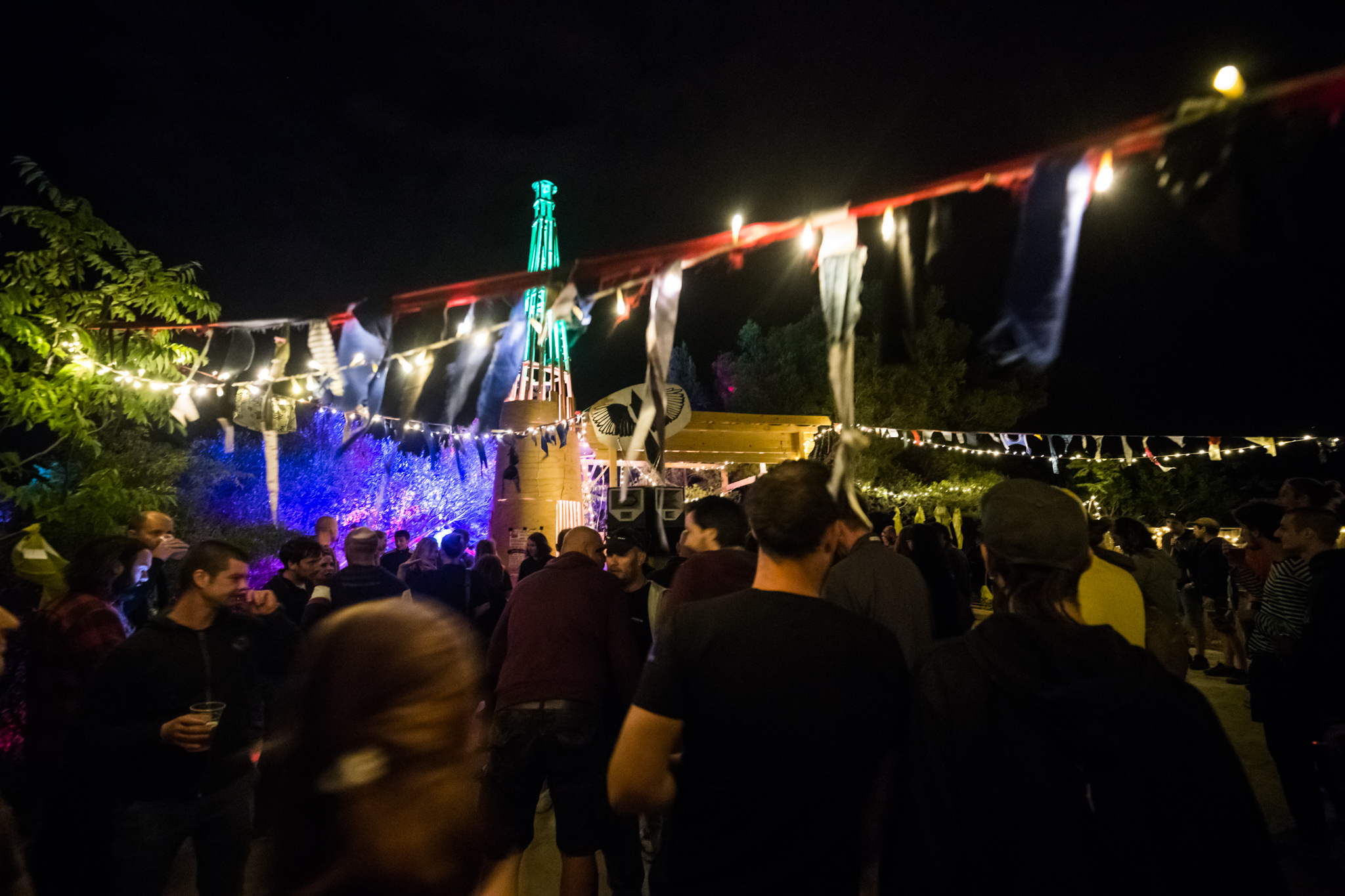
“It's not only the five festivals and one concert event that we did,” Pozitivan Ritam director Vedran Meniga told TCN, “The Fortress of Culture in Sibenik had more than 30 events this summer and Project Vojarna in Sibenik had two parties this year with over 4000 people. On one RTL television show, they described Sibenik as the Croatian Wuhan when 3000 people were in the town for one techno party there. But, at the end of the season, none of these events resulted in a single Coronavirus infection. Not one.”
Following a successful lockdown earlier in the year, cases of Coronavirus were limited in Croatia at the start of the season. Yet, some were understandably hesitant to come. Music festivals in Sibenik still managed to attract visitors from Britain, France, the Netherlands, Belgium and Germany to Martinska. Even after the middle of August when cases began to appear in other regions and international visitor numbers dried up, the festival site was still busy with Croatians and partygoers from near-neighbouring countries. At the end of August, there were no more than five infected persons in Sibenik. None were music festival or music event attendees. Throughout much of the summer, Sibenik recorded zero cases.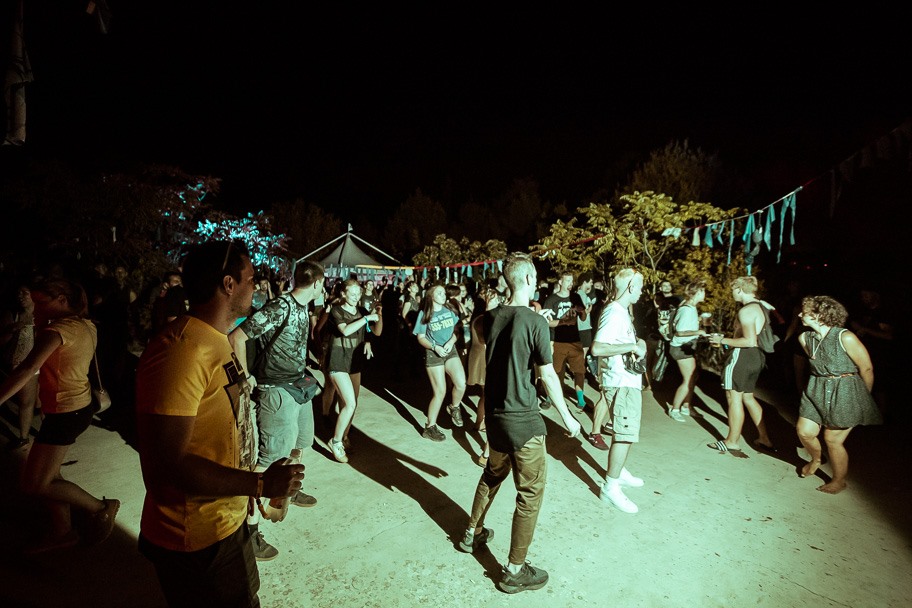
“The music festivals in Sibenik are proof that it's possible to work doing events during the era of Corona,” Meniga tells TCN. “Of course, all of our events were open-air and no doubt that helped.”
"When cases started to reappear elsewhere at the end of July, I went to the civil authorities and epidemiologists immediately, before they came to us,” says Vedran. “The civil authorities and the police grant the license for the events. I presented them with a plan and they were satisfied. They allowed us to continue.”
“It helped that Martinska is across the bay from Sibenik. Festival attendees don't even need to go into the town to come, they drive here straight from the Magistrala (Croatian coastal highway). Also, Martinska's capacity is five times bigger than the numbers we were going to cater for. The site can accommodate six to seven thousand. We expected no more than 1500 daily. That was more than enough space to maintain physical distance. We carefully took all contact details for each attendee at the entrance, in case something appeared and we (or authorities) had to later contact people. We also took everyone's temperature. And in addition to the required epidemiological sanitization, we also installed disinfectant pillars at every single point where money or goods exchanged hands. All our staff wore not only masks but also gloves. Four times the civil authorities made surprise visits to the site for inspection along with epidemiologists and police. Each time they were completely satisfied.”
Current forecasts for the Coronavirus response predict that a vaccine will not be available to cover everyone until the autumn of 2021. This has serious implications for at least one more tourist season. Yet, with the incredible achievements seen this summer at Martinska's music festivals in Sibenik, we can all take hope that events, tourism, and even life itself may continue to be enjoyed in the near future, as long as we're all smart about it.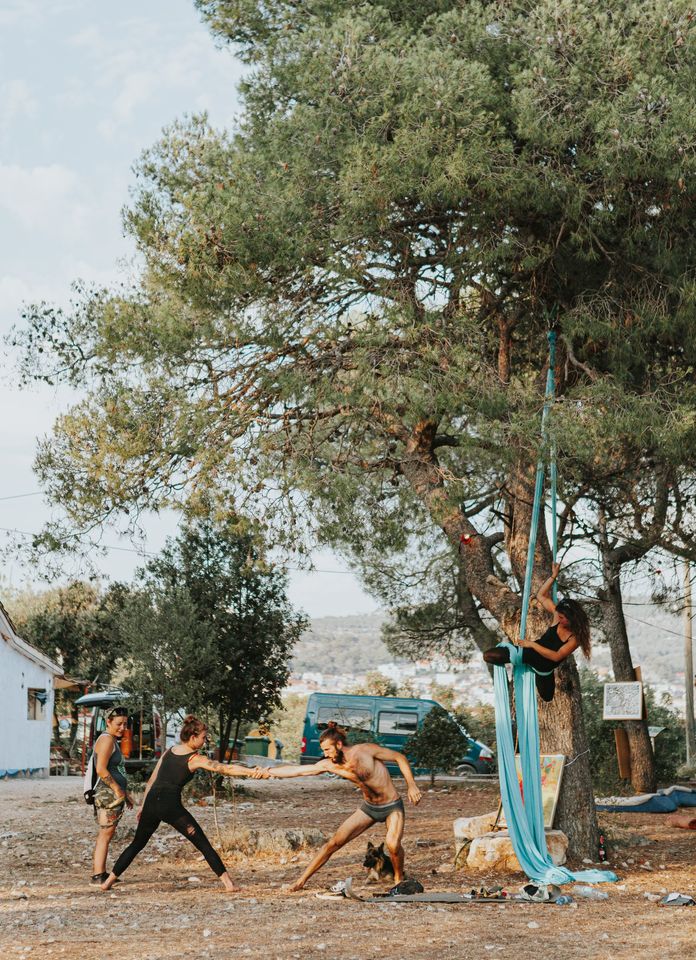
All photos 2020 Martinska © Seasplash / Pozitivan Ritam.
For the latest travel info, bookmark our main travel info article, which is updated daily.
Read the Croatian Travel Update in your language - now available in 24 languages
Croatia On Slovenia RED List. What Does That Actually Mean?
August 20, 2020 – Slovenians must quarantine if returning from Croatia after the weekend, but what are the implications of Croatia on Slovenia RED list?
Update on August 20, after the official placement of Croatia on Slovenia RED list by the Slovenian government was made public: in order to make things easier for their nationals currently vacationing in Croatia, Slovenia has decided to extend the deadline for the return to Slovenia until Monday. Slovenians who own real-estate and boats in Croatia are given an extra 48 hours, so they can take care of their property before leaving Croatia without self-isolating upon return.
As reported in TCN yesterday, Slovenia has designated Croatia on Slovenia RED list as a country on its red list for travel. Sounds bad. But, what does it actually mean?
Well, for Slovenes, the choice is pretty simple – return home before the end of the weekend, or you'll face a mandatory two-week quarantine and Coronavirus test when you do. The quarantine and test will apply automatically to any Slovene travelling to Croatia after Friday.
But, what are the implications of Croatia on Slovenia RED list?
Well, the mandatory quarantine and test apply to any Croatian entering Slovenia after the weekend. There are exceptions – if you're just passing through, say, on your way to Austria or Germany, the quarantine doesn't apply. You'll have a maximum of 12 hours to travel into, through, and out of Slovenia. The same goes for delivery drivers who are just dropping off or picking up. You can stop for gas and use the WC. Special permits are also available for those who have to cross the border for daily trade.
Not such a big deal for Croats, then? Well, we'll have to wait and see. But, it doesn't look good. The economic implications could bite much harder.
From June, Slovenians have accounted for 7 million overnight stays in Croatia. As reported continuously in TCN's 2020 travel and tourism coverage, regional tourism - lead by those travelling by car – has accounted for the largest number of arrivals this year. Numbers of Slovenes holidaying in Croatia are actually up by as much as 3 percent compared to the same period last year.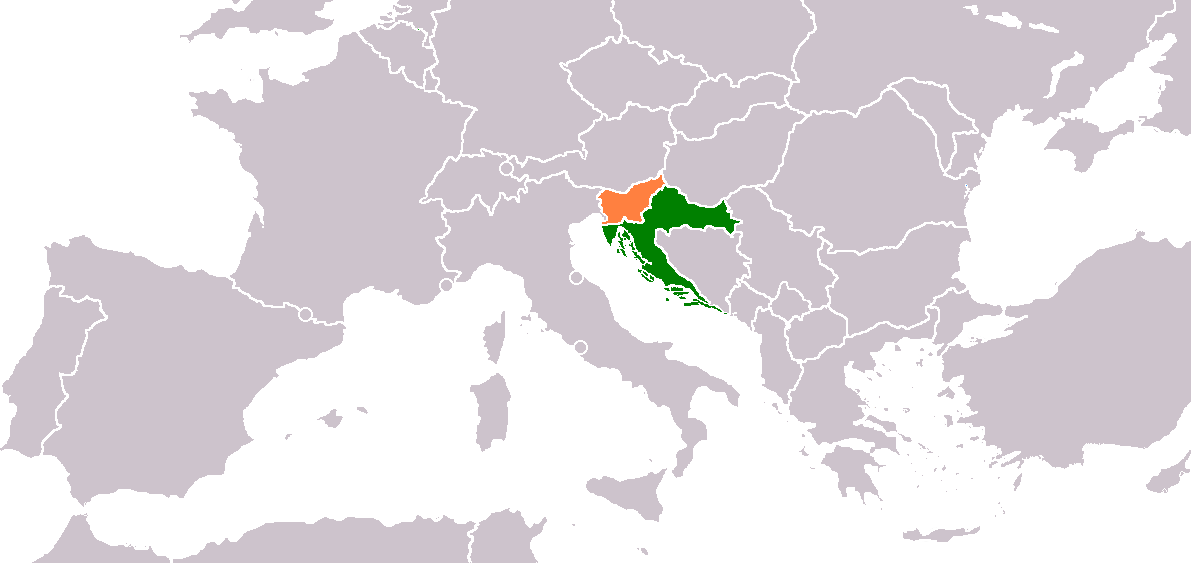
In 2020, visitors from Croatia's next-door neighbour have been more important - and more numerous - than ever before, until Croatia on Slovenia RED list
According to the Croatian National Tourist Board, Slovenes accounted for 8.7% of arrivals and 11.5% of overnight stays in total over 2019, second only to Germans. During this 2020 season, in which their custom is more important than ever, the financial impact on Croatia may be much more damaging than that incurred from similarly imposed classifications by Austria and Italy, who recently announced mandatory testing for all returnees.
The peak days of the season are already behind us but, truth be told, the season only began in earnest a month ago. There was no pre-season this year. Hopes of an extended season, based on the optimistic numbers of July / early August, now seem to be dashed, due to the rise in number of COVID-19 infections. Certainly from the Slovenian market.
Will Slovenes and others accept a mandatory quarantine in exchange for their annual break on the Croatian coast? Some may. Surely, some won't. Any Slovenes planning trips in late August or September have been given serious cause to reconsider, thanks to the new classification. School and work start again in September – how does a two-week mandatory quarantine fit into that schedule?
Nobody really knows how long the 'red card' Slovenia has given Croatia will last, nor when it will end. The answer presumably lies in Croatia's ability to address its number of newly infected. Before all criticism for the stranglehold this classification places on the 2020 season is attributed to Slovenia, Croatia must first ask itself some tough questions; could Croatia – from staff and owners in the service industry, right the way up to state level - have done more to keep the numbers down? For it is the numbers now that can help save the remainder of Croatia's 2020 tourist season, not the Slovenes.
For the latest travel info, bookmark our main travel info article, which is updated daily.
Read the Croatian Travel Update in your language - now available in 24 languages


